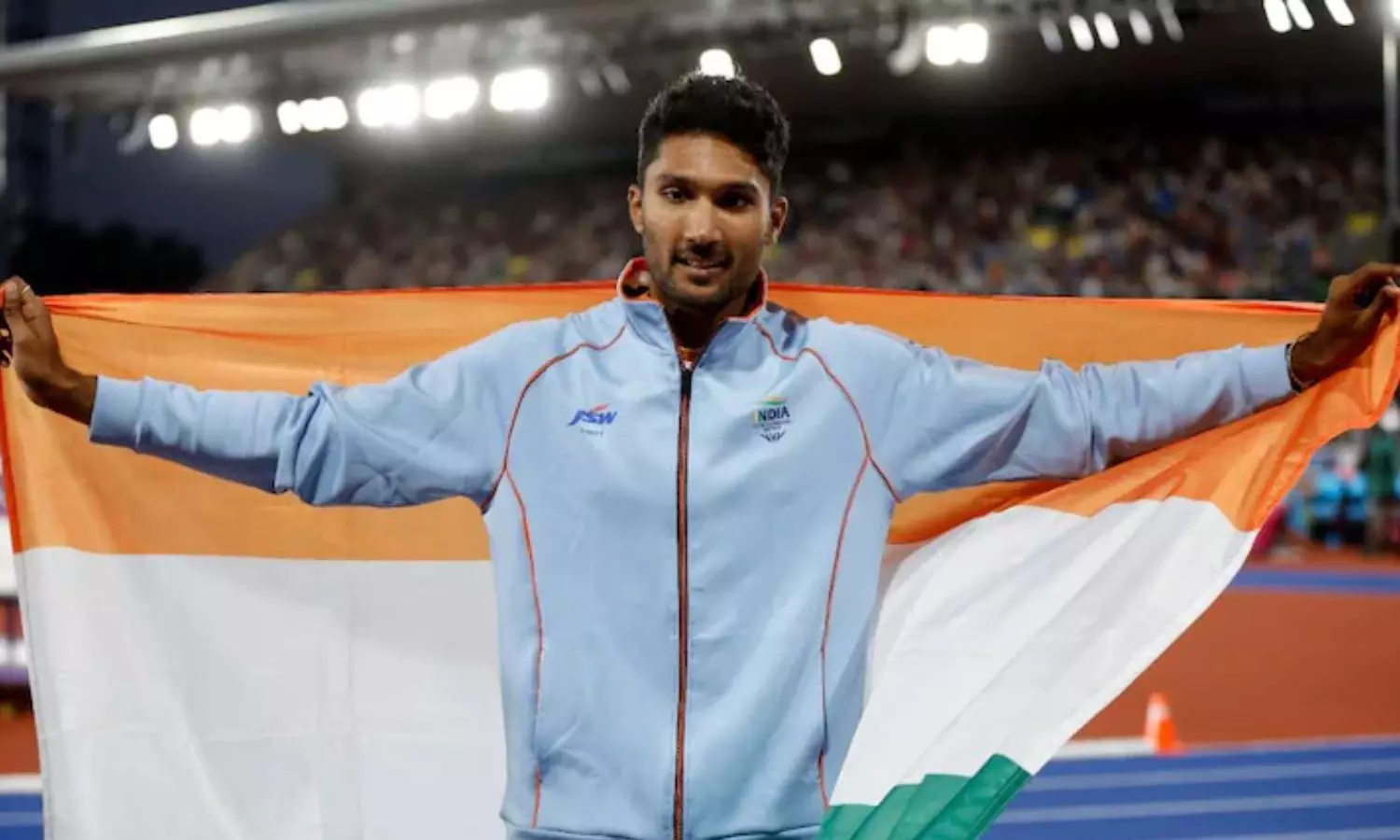Athletics
Tejaswin Shankar unhappy with govt's job policy for Khelo India medalists
Tejaswin Shankar questioned the centre's decision to offer Khelo India medal winners jobs. He said it might encourage athletes to resort to "unfair means".

Tejaswin Shankar after winning India's first-ever high jump medal at the Commonwealth Games (Source: India Today)
Tejaswin Shankar has raised concerns over the Ministry of Youth Affairs and Sports' decision to grant government jobs to Khelo India medal winners.
Shankar, known for his achievements in the high jump event including a bronze in the 2022 Commonwealth Games and a decathlon silver in the Hangzhou Asian Games, expressed his reservations about the policy, suggesting it might encourage athletes to resort to "unfair means" to secure these positions.
The sports minister, Anurag Thakur, announced the revised criteria on Wednesday, extending government job eligibility to medal winners from various categories of the Khelo India Games, including Youth, University, Para, and Winter Games.
Tejaswin took it to the social media platform 'X' to voice his concerns. "If we want to be a sporting superpower we can't normalize giving out sports quota jobs to youth/junior athletes," he stated.
The high jumper proposed alternative criteria for such opportunities, suggesting, "Needs to be criteria eg: 3 years of consistent medals at nationals or 5 years of being in top 8 nationally, etc." He emphasized the importance of rewarding consistent performance over singular achievements, cautioning against incentivizing "spikes in performance" that could lead to unfair practices.
The unfair means mentioned by Tejaswin points out the old practice of age fudging in Indian sports where overage athletes participate in age group competitions to gain medals and certificates.
The government's stance on the matter aims to nurture talent at the grassroots level and make sports a viable career option.
Shankar acknowledged the positive impact of the Khelo India initiative but believes that job opportunities do not align with its broader goals of developing a robust sporting ecosystem.
"Khelo India is a wonderful opportunity to grow awareness, scout talent, develop interest, create a sporting ecosystem, etc. Jobs don't fit in this conversation," Shankar remarked, suggesting that the focus should be on creating a broad pool of athletes through various platforms such as school nationals, university games, and Khelo India.
He stressed the need for greater rewards as athletes progress, cautioning against making the "lowest hanging fruit" too enticing.
